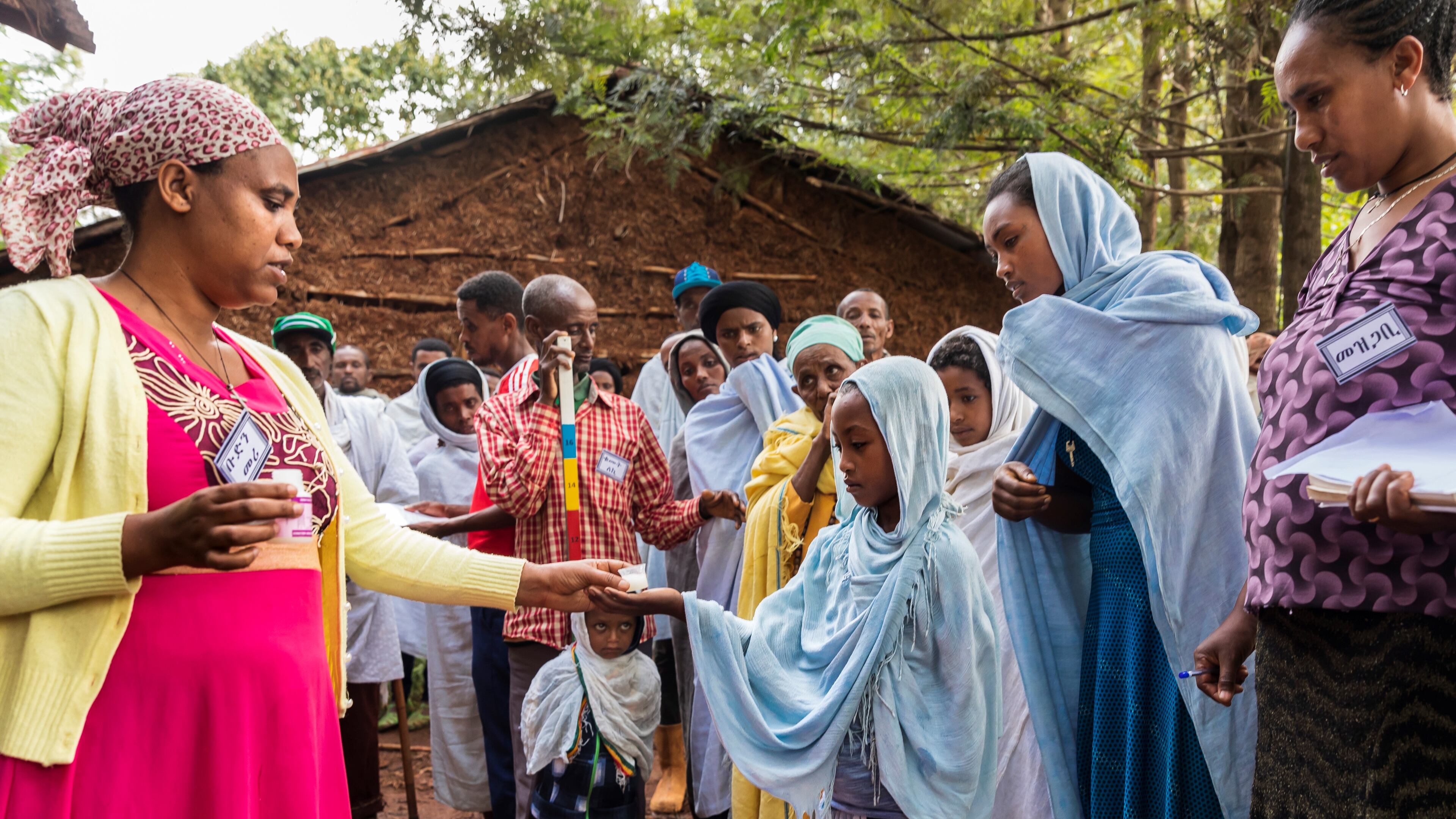The Task Force for Global Health: Tackling global problems through powerful partnerships

With Atlanta home to the Centers for Disease Control and Prevention (CDC), the city plays an important role in global health, including in the current fight against COVID-19. Our global reach is even greater with the Decatur-based Task Force for Global Health, a nonprofit organization dedicated to combating disease.
The organization was founded in 1984 by Dr. William H. Foege, who served as director of the CDC in 1977. At the time, it was called The Task Force for Child Survival and focused on increasing child immunization rates across the globe.
“The institution began as a task force to solve the big problems,” Dr. David Ross, chief executive officer and president of The Task Force for Global Health, said.
» RELATED: Atlanta Mission: Giving hope and help to Atlanta's homeless
He describes Foege’s actions as “courageous and smart” because they took already existing vaccines and helped more children in lower-income countries have access to them.
“It was because people weren’t coming together and making it happen,” Ross explained, “so he formed this task force to get these people together.”
The nonprofit soon began concentrating on forming global partnerships with groups such as the CDC and the Bill & Melinda Gates Foundation.
“It is an art form of making partnerships,” Ross explained.
Today, The Task Force continues its mission with efforts in areas such as disease surveillance and coordinating and expanding access to medical supplies and equipment while still emphasizing vaccinations.
» RELATED: Nurse volunteers speak the many languages of love in Clarkston
A large part of the organization’s mission at the moment is combatting the COVID-19 pandemic.
“We are working hard to achieve big impacts...” Ross said.
“Solving big problems requires big partnerships and coalitions. When we look today...our impact is a result of mobilizing partnerships. It’s all of those partners working together. And together we make a very large impact on a significant scale,” he added.
“We reach well over 150 million people every year...with medicines and systems,” he said.
Experience with these systems can help The Task Force prepare for the time when a COVID-19 vaccine is developed. For example, its experience with bringing medicines to faraway places to treat diseases like river blindness could be utilized to distribute a COVID-19 vaccine.
“We have a supply chain capability to move massive amounts of medicine,” Ross pointed out, describing their reach to countries all over the world as going “to the end of the road.”
The nonprofit is also coordinating the medical surplus supply program to ensure that masks, ventilators and other essential equipment reaches hospitals, police departments and other entities on the front lines.
“We have trained over 14,000 people around the world,” Ross explained, to serve as field epidemiologists to help increase the ability to respond to the outbreak. In addition, he said, The Task Force is working with vaccine researchers around the world and with public health officials, the CDC, Google, Apple and others to develop digital contact tracing tools.
Another regrettable effect of the COVID-19 pandemic has been the fact that the disease has interrupted some of The Task Force's other programs, such as those that help eliminate diseases like polio and leprosy. The U.S. has also stopped funding the World Health Organization (WHO) as President Trump criticized the organization for its handling of the pandemic.
Ross disagreed with this decision, saying that while the WHO isn’t perfect, they’ve done a very good job in a challenging situation.
If you'd like to help The Task Force, there are several ways to do so, including making a donation or shopping through Amazon Smile and designating it for a charitable donation at no cost to you.

